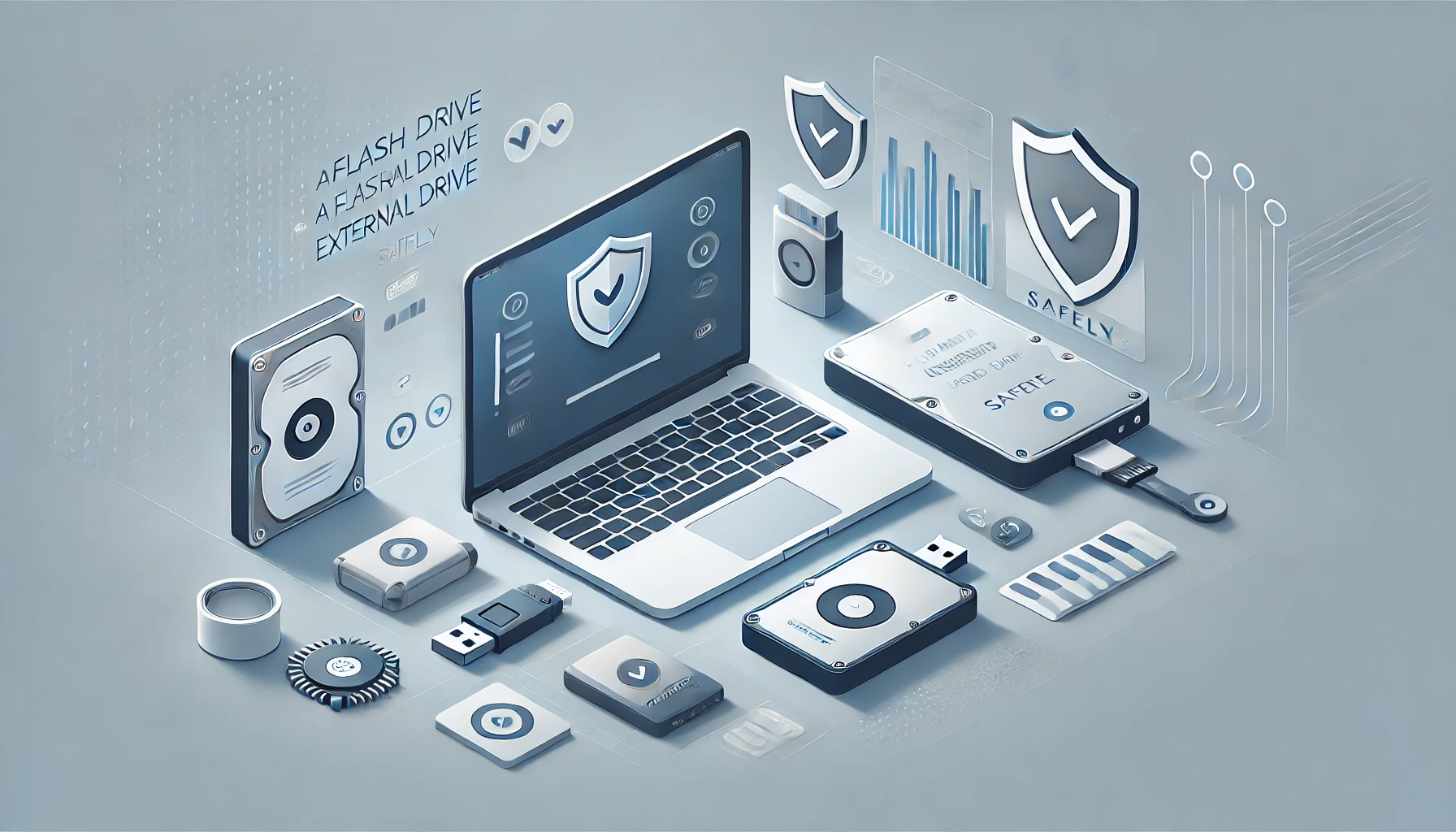How to Transition to Ethical Banking
1. Introduction: The Growing Importance of Ethical Banking
Ethical banking is becoming increasingly popular as consumers seek to align their financial choices with their values. Ethical banks prioritize social responsibility, environmental sustainability, and transparency in their operations. They avoid investing in industries that harm the environment or exploit people, such as fossil fuels, arms manufacturing, or unethical labor practices.
The transition to ethical banking allows you to ensure that your money is being used to support causes you care about, such as renewable energy, affordable housing, or community development. Ethical banks also provide competitive financial products while maintaining high standards for responsible banking.
This guide will walk you through the steps of transitioning to ethical banking, from identifying the right bank to understanding the impact of your financial choices.
2. Understanding What Ethical Banking Means
Ethical banking refers to financial institutions that operate with a commitment to social, environmental, and governance standards. These banks focus on lending and investment practices that promote positive social change while avoiding industries that cause harm.
Ethical banks typically prioritize transparency, publishing information on how customer deposits are used and ensuring that their business activities align with sustainability and ethical goals. This contrasts with many traditional banks, which often invest in industries like fossil fuels, arms, or tobacco.
By choosing an ethical bank, you can ensure that your money is being used for good, supporting projects that contribute to a fairer, more sustainable world.
3. Why Transition to Ethical Banking?
Transitioning to ethical banking is an opportunity to make a positive impact with your finances. Ethical banks often invest in sustainable initiatives, such as renewable energy, affordable housing, and small businesses, which contribute to local communities and environmental protection.
Moreover, ethical banking offers transparency and accountability, ensuring that customers know exactly where their money is going. Unlike conventional banks that may finance harmful industries, ethical banks use their financial power to drive social and environmental change.
By making the switch, you contribute to a more sustainable and responsible financial system while still receiving the banking services you need for everyday life.
4. Researching Ethical Banks
The first step in transitioning to ethical banking is researching potential banks that align with your values. Look for banks that have clear ethical policies on where they invest, such as avoiding fossil fuels or supporting renewable energy.
Several online resources, such as B Corporation directories, the Global Alliance for Banking on Values (GABV), or independent ethical bank ratings, can help you identify ethical banks. Additionally, many ethical banks openly publish their sustainability reports, providing insight into their lending practices and environmental goals.
By thoroughly researching ethical banks, you can find an institution that reflects your values and offers the financial products you need.
5. Key Features of Ethical Banks
Ethical banks stand out due to their commitment to transparency, social responsibility, and sustainability. They often offer innovative financial products designed to support green initiatives and community development.
Look for banks that offer green loans, which provide financing for energy-efficient home improvements or renewable energy projects. Many ethical banks also offer socially responsible investment (SRI) options, where you can invest in funds that align with ethical and environmental goals.
These banks often provide the same services as traditional banks—such as savings accounts, checking accounts, and credit cards—while maintaining a focus on ethical principles and positive impact.
6. Checking the Bank’s Investment Policies
Before switching to an ethical bank, take the time to review its investment policies. Ethical banks will clearly outline where they invest customers’ money, such as in renewable energy, affordable housing, or fair trade businesses.
Avoid banks that invest in industries like fossil fuels, arms, tobacco, or companies involved in human rights violations. Ethical banks often publish detailed reports on their investments and lending practices, allowing you to make an informed decision.
By choosing a bank with responsible investment policies, you ensure that your money is being used to support industries and projects that align with your ethical beliefs.
7. Considering Credit Unions as Ethical Alternatives
Credit unions are member-owned financial cooperatives that often prioritize community development, making them a strong alternative to traditional banks. Many credit unions follow ethical practices, offering loans to small businesses, local projects, and individuals rather than investing in harmful industries.
Credit unions are often more transparent and focused on supporting local economies. Additionally, profits are reinvested into the community or returned to members through lower fees and better interest rates, rather than distributed to shareholders.
By joining a credit union, you can benefit from ethical banking services while supporting a community-focused institution.
8. Comparing Fees and Services
When transitioning to ethical banking, it’s important to compare the fees and services offered by ethical banks to ensure they meet your financial needs. Many ethical banks offer competitive rates on savings accounts, loans, and credit cards, but it’s still wise to check for any hidden fees or charges.
Consider the convenience of banking services, such as online banking, ATM access, and mobile apps. Ethical banks often prioritize customer service and provide digital solutions that make banking more accessible and efficient.
By comparing fees and services, you can find an ethical bank that offers both the values you care about and the practical banking services you require.
9. Switching Your Savings and Checking Accounts
Once you’ve chosen an ethical bank, the next step is to switch your savings and checking accounts. Start by opening new accounts at the ethical bank while keeping your existing accounts open to ensure a smooth transition.
Update your direct deposits, automatic payments, and other recurring transactions to reflect the new account information. Ethical banks typically offer support in transferring your accounts, making the process easier and more seamless.
After confirming that all transactions are successfully routed to your new account, close your old accounts to complete the transition.
10. Moving Your Investments to Ethical Funds
In addition to switching your bank accounts, consider moving your investments to ethical funds. Many ethical banks offer socially responsible investment options, including mutual funds, ETFs, and retirement accounts that focus on companies with strong ESG (environmental, social, governance) practices.
Review your current investment portfolio and identify areas where you can shift to sustainable options. ESG funds often perform well financially while supporting companies that prioritize sustainability, labor rights, and ethical governance.
By moving your investments to ethical funds, you align your financial portfolio with your personal values, supporting companies that contribute to a more sustainable and equitable world.
11. Choosing Green Loans and Mortgages
If you’re planning to apply for a loan or mortgage, consider working with an ethical bank that offers green financing options. Green loans and mortgages are designed to support environmentally friendly projects, such as energy-efficient home improvements or eco-friendly real estate developments.
Many ethical banks offer lower interest rates for green loans, making it easier and more affordable to invest in sustainable home upgrades like solar panels, energy-efficient windows, or water conservation systems.
By choosing a green loan or mortgage, you can reduce your environmental impact while also saving money on financing costs.
12. Reviewing Ethical Credit Cards
Ethical banks often offer credit cards with rewards programs that reflect their values, such as donating a percentage of each purchase to environmental or social causes. These cards may also feature lower fees and more transparent terms compared to traditional credit cards.
When choosing an ethical credit card, review the bank’s policies on interest rates, rewards, and any associated fees. Some ethical credit cards are specifically designed to reduce their carbon footprint, with options like paperless statements and support for carbon offset programs.
By switching to an ethical credit card, you can ensure that your everyday purchases contribute to causes you care about.
13. Supporting Local and Community-Focused Banks
Local and community-focused banks are often ethical by nature, prioritizing lending to small businesses, affordable housing projects, and local development initiatives. These banks are typically smaller and more connected to the communities they serve.
By banking with a local institution, you support the growth of your community and ensure that your money is being used to benefit local projects. Community banks often have strong ties to local environmental initiatives, making them a great option for ethical banking.
Switching to a community bank allows you to keep your money close to home while supporting sustainable and socially responsible development.
14. Avoiding Banks That Fund Fossil Fuels
One of the key motivations for transitioning to ethical banking is avoiding banks that fund fossil fuel industries. Many large traditional banks provide financing to companies involved in oil, gas, and coal extraction, contributing to environmental degradation and climate change.
Ethical banks, on the other hand, often have strict policies against funding fossil fuel projects. By choosing an ethical bank, you can ensure that your money isn’t being used to support industries that harm the planet.
Avoiding fossil fuel banks is a powerful way to align your financial choices with your environmental values and take a stand against climate change.
15. Checking for B Corp Certification
Certified B Corporations (B Corps) meet high standards of social and environmental performance, transparency, and accountability. Several ethical banks have achieved B Corp certification, ensuring that they operate with a focus on sustainability and social responsibility.
B Corp certification is an important indicator of an ethical bank’s commitment to positive impact, as it requires rigorous assessments of a company’s impact on workers, customers, communities, and the environment.
By choosing a B Corp certified bank, you can trust that the institution aligns with your values and is committed to ethical and sustainable business practices.
16. Evaluating the Bank’s Environmental Initiatives
Many ethical banks go beyond responsible investing by actively participating in environmental initiatives, such as supporting renewable energy projects, reforestation efforts, or carbon offset programs.
Review the bank’s environmental commitments to ensure that they are genuinely dedicated to sustainability. Ethical banks often publish reports on their environmental impact and may participate in global sustainability goals, such as the United Nations’ Sustainable Development Goals (SDGs).
By banking with an institution that actively supports environmental initiatives, you contribute to a greener future while enjoying the benefits of ethical financial services.
17. Encouraging Your Employer to Switch to Ethical Banking
As part of your transition to ethical banking, you can also encourage your employer to consider switching to an ethical bank for business accounts, payroll, and employee benefits. Businesses that bank ethically support sustainable development and can enhance their corporate social responsibility efforts.
Present the benefits of ethical banking to your employer, such as transparency, sustainability, and community impact. Highlight how transitioning to an ethical bank aligns with the company’s values and sustainability goals.
By advocating for ethical banking within your workplace, you can help amplify the positive impact of your financial choices.
18. Involving Family and Friends in the Transition
Transitioning to ethical banking is an opportunity to inspire family and friends to make the switch as well. Share your journey and the benefits of ethical banking, explaining how it aligns with shared values of sustainability, social justice, and responsible finance.
Many people may be unaware of how traditional banks use their deposits to fund harmful industries. By educating others about ethical banking, you can help them make more informed financial decisions that support positive social and environmental outcomes.
Building a community of ethical bankers amplifies the impact of your financial choices, contributing to a larger movement toward responsible banking.
19. Monitoring Your Bank’s Ethical Practices
Once you’ve transitioned to an ethical bank, it’s important to stay informed about the bank’s practices and policies. Regularly review the bank’s reports on sustainability, investments, and social responsibility to ensure they continue to align with your values.
Ethical banks are typically transparent about their impact, but it’s still essential to hold them accountable. If you notice changes in the bank’s practices that don’t align with your values, consider reevaluating your options and switching to a different ethical institution if necessary.
By staying engaged with your bank’s practices, you ensure that your money continues to support the causes you care about.
20. Staying Committed to Ethical Banking
Transitioning to ethical banking is a significant step toward aligning your finances with your values, but the journey doesn’t end there. Staying committed to ethical banking means continuously seeking ways to improve the social and environmental impact of your financial decisions.
Stay informed about new ethical investment opportunities, green financial products, and sustainable banking practices. Consider expanding your commitment to sustainability by integrating ethical practices into other areas of your life, such as reducing waste, supporting local businesses, or investing in renewable energy.
By remaining dedicated to ethical banking, you contribute to a more just, sustainable, and responsible financial system for the long term.
Case Study: How Maria Transitioned to Ethical Banking
Maria, a 38-year-old environmental advocate, wanted her financial decisions to reflect her commitment to sustainability. After learning that her traditional bank was heavily invested in fossil fuels, she decided to switch to an ethical bank that prioritized renewable energy and community development.
Maria researched ethical banks and found one that aligned with her values and offered the services she needed, including checking accounts, savings accounts, and green loans. She opened new accounts, transferred her direct deposits and automatic payments, and moved her investments to ESG funds offered by the bank.
By transitioning to ethical banking, Maria felt more empowered knowing that her money was supporting projects she cared about. She also shared her experience with friends and family, inspiring several of them to make the switch as well. Maria continues to monitor her bank’s practices to ensure they align with her values, making a positive impact with her finances.
Conclusion
Transitioning to ethical banking is a powerful way to ensure that your financial choices align with your values. By researching ethical banks, comparing services, and switching your accounts and investments, you can make a meaningful impact while enjoying competitive financial products. Ethical banking supports social and environmental causes, offering transparency, accountability, and the opportunity to contribute to a more sustainable world. Whether you’re moving to a credit union, a community bank, or an ESG-focused financial institution, the steps you take toward ethical banking can help drive positive change in both your finances and the broader economy.
FAQ
1. What makes a bank ethical?
An ethical bank prioritizes social responsibility, environmental sustainability, and transparency. It avoids investing in harmful industries, such as fossil fuels or arms, and instead supports projects that promote positive social and environmental impact.
2. How can I find an ethical bank?
You can research ethical banks through resources like B Corp directories, the Global Alliance for Banking on Values, and ethical bank ratings. Review each bank’s investment policies, transparency, and commitment to sustainability to find one that aligns with your values.
3. Do ethical banks offer competitive financial products?
Yes, many ethical banks offer competitive rates on savings accounts, loans, and credit cards. They also provide innovative products, such as green loans and socially responsible investment funds, while maintaining transparency and accountability.
4. Can I switch my investments to ethical funds?
Yes, many ethical banks offer socially responsible investment options, including ESG funds and green bonds. These investments focus on companies with strong environmental, social, and governance practices, allowing you to align your portfolio with your values.
5. What are green loans and mortgages?
Green loans and mortgages are financing options offered by ethical banks to support environmentally friendly projects, such as energy-efficient home improvements or renewable energy installations. These loans often come with lower interest rates and promote sustainability.





